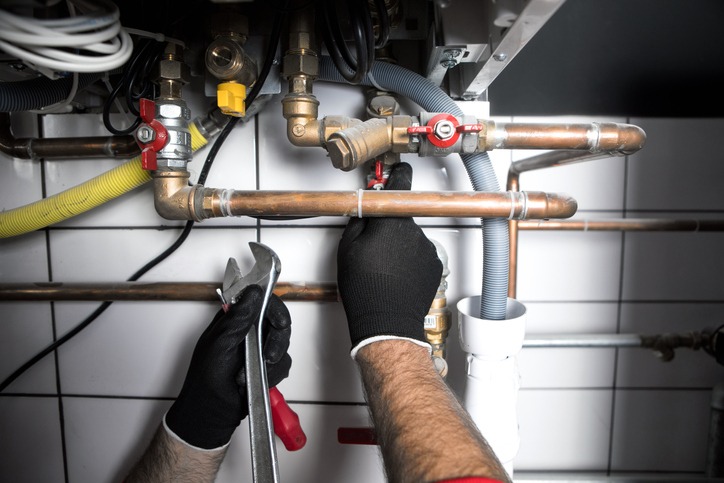When it comes to home maintenance and upkeep, plumbing is one of the most important aspects you must consider. It’s essential for homeowners to understand the basics of their home’s plumbing system so they can identify potential problems quickly and address them as early as possible.
In this blog post, we’ll explore what residential plumbing systems encompass and go over some common problems faced by homeowners.
When hiring a professional, make sure to look for the best plumber in Evanston, IL to ensure you receive quality service.
What is residential plumbing and what does it do for your home?
Residential plumbing refers to the system of pipes, fixtures, and appliances that carry water into and out of a home. This includes sinks, toilets, showers, dishwashers, garbage disposals, and washing machines.
All these components work together in order to provide clean water for drinking, bathing, and other household activities, as well as remove wastewater generated from these activities.
The different types of plumbing fixtures in your home
The plumbing fixtures in a home are what make living there comfortable. Each of these fixtures has its own unique purpose and function. Here are some of the most common:
- Sinks – Responsible for holding the water necessary for washing dishes and hands.
- Faucets – Used to provide a controlled flow of water, while toilets provide an outlet for wastewater.
- Showers – Used for bathing and other hygiene purposes.
- Bathtubs – Provide a larger area of water to relax in.
- Taps – Provide a way to control the flow rate of water and are often found in kitchens.
These fixtures each have specific needs when it comes to installation, repair, and maintenance. Knowing how each of these fixtures works can help you identify potential problems early and address them as quickly as possible.
How to properly use and maintain your plumbing fixtures
Proper use and maintenance of plumbing fixtures are essential to ensure that they work correctly and last for a long time. It’s important to follow the manufacturer’s instructions when using any type of plumbing fixture and to check regularly for signs of wear and tear.
Some tips for the proper use and maintenance of plumbing fixtures include:
- Keeping shower heads, faucets and other fixtures clean. Run vinegar through the fixture to help remove debris and build-up.
- Replacing any worn or damaged fixtures as soon as possible to avoid further damage.
- Using the correct amount of water pressure when using fixtures. Too much pressure can cause damage, while too little can result in water not flowing correctly.
- Running a little bit of hot water through cold pipes to prevent freezing in winter.
- Making sure there are no leaks around the fixtures. Check for drips or wet spots on the floor or walls.
- Avoid using chemical cleaners or bleaches on the fixtures, as these can damage the finish.
- Regularly inspect pipes for signs of corrosion or leaks.
- Clean out clogged drains and replace old drain pipes with new ones.
- Use a plumbing snake to unclog drains or run hot water through them to break up clogs.
- Don’t pour grease, fat, or oil down the drain, as this can cause blockages.
- Make sure any valves are properly shut off when they are not in use.
With these tips, you’ll be able to keep your plumbing fixtures in good condition and decrease the chances of any problems occurring.
Why you should call a professional to service your residential plumbing
It’s always best to call a professional for any residential plumbing services. Professional plumbers have the knowledge, experience, and tools to properly diagnose and repair plumbing issues without causing further damage. They also understand how different systems work together and can offer solutions that are tailored to your specific situation.
Calling a professional is especially important if you’re dealing with a complicated plumbing system, such as one that involves multiple fixtures or pumps. Professionals can also help you make decisions about which components to purchase when replacing worn-out parts.
A professional plumber can also provide advice on how to best maintain your plumbing system so that it remains in good condition for many years to come. They’ll be able to suggest preventative measures you can take to ensure that any plumbing problems are caught and repaired before they become major issues.
Overall, calling a professional when dealing with residential plumbing can help save time, money and stress in the long run. They have the knowledge and expertise to properly diagnose and repair plumbing issues quickly and efficiently.
Conclusion
Understanding the basics of residential plumbing systems is an important part of owning a home. It’s essential to be aware of common problems, know how to properly use and maintain plumbing fixtures, and choose a reliable plumber when necessary.
With this knowledge in hand, you can take the necessary steps to ensure your plumbing system is up and running correctly. By understanding the basics of residential plumbing, you can make sure your home’s plumbing system stays functional and reliable for years to come.

